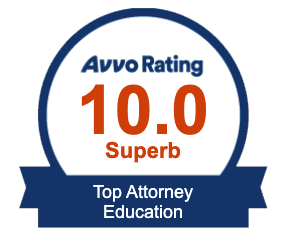For virtually all of the Georgia school systems, classes have ended and school is out for the summer. Your children are out of school but teachers and administrators are still busy in post-school year planning activities. They may even convene an IEP meeting or two at this time of year. I have attended one or two of these late IEP meetings during post-planning but they are rare. But this does not means – as parents – you should stop thinking about your child’s special education program, instruction, services, and placement because school has ended. tot he contrary, I have received several inquiries just this past week from parents about their child’s IEP and special education program. Some parents wait until the end of the school year to reflect on the status of their child’s special education program and then begin preparing for next school year. Some of these parents come to the realization that the school system did not provide a free appropriate public education for their child. They find that their child did not make adequate educational progress; that the child is still significantly behind grade level in academic areas; that the school did not comply with part or all of the IEP, and a host of other concerns. So what is next?
There are a number of things you can be doing at the end of the school year to start preparing and planning for next school year. For those parents that have children in extended school year programming, you will want to see if the school is focusing on the IEP goals and objectives to maintain skill levels and proficiency in IEP areas such as reading, math, social skills, speech and language, and occupational therapy for example. You should ask for data and records of your child’s extended school year program so that you can consider if the program made any difference, and if so, whether it can be objectively measured and assessed. Did the extended school year program prevent your child from regressing educationally? If not, then why not? For parents that do not have their children attend extended school year programs – either through the school system or privately – you may want to consider what educational goals you expect your child to achieve next school year. Parents have had varying experiences about the school their child attended this past school year. Sometimes it was a good school year and sometimes it was not. Each school year can be vastly different than the prior school year due to a number of factors such as the child’s teachers, the Principal and Assistant Principal, the change or replacement of a School Superintendent and Special Education Director or other things. In retrospect here are a number of facts that can change the quality of the education your child received or will receive next school year. This is why it so hard to predict, at times, what the next school year will bring for your child. A change in the Principal of your child’s school, for instance, can make a huge difference in the quality of education at that school. The retirement or transfer of certain teachers in your child’s school can make a huge difference in the quality of education at that school as well.
For those parents who have reflected on their child’s special education program for the past year, you may have many questions and concerns. I have already heard from a number of parents about these concerns. What I generally ask each parent is to allow me to review your child’s educational records for at least the last three years, which may include but is not limited to, IEPs, eligibility reports, psychological and medical evaluations of the school system, independent educational evaluations, disciplinary reports, behavior intervention plans, occupational, speech and language therapy evaluations, assistive technology evaluations, and student report card and progress. These documents are very important to review before I can properly assess your parental concerns and questions about your child’s special education program and IEP for this past school years. it is also important to review to provide advice and guidance about extended school year programming and preparing for next school year.
And as other parents have recently done, you can contact an experienced special education attorney – such as me – to discuss your concerns and questions that you may have about this past school year, extended school year programing, and the implementation of your child’s IEP for next school year beginning in August. Next school year will come around in a blink of the eye. In the meantime, I hope you have a good summer.

